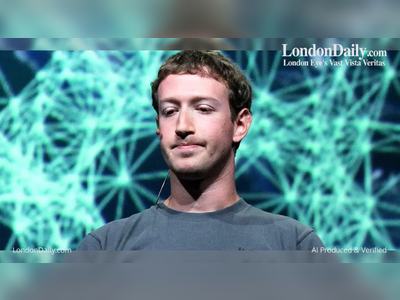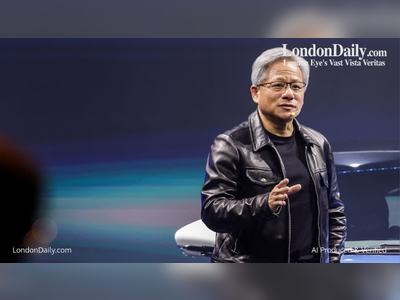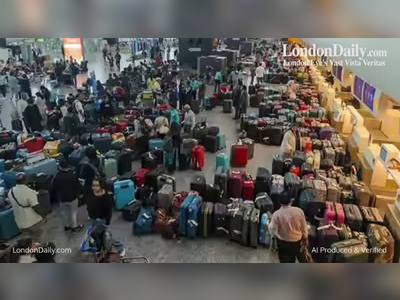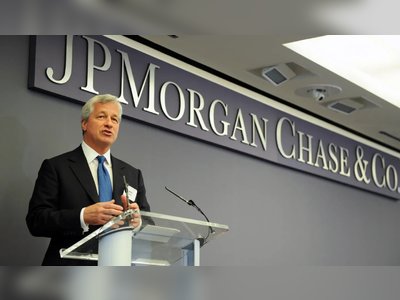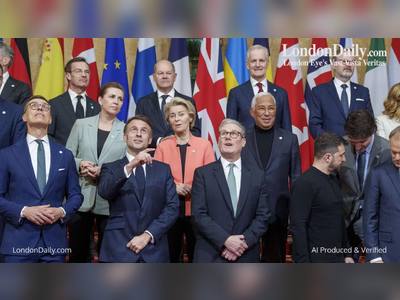0:00
0:00
EU Leaders Reach Consensus to Increase Defence Expenditure in Response to Growing Security Threats
Leaders of the European Union commit to boosting defense expenditures to fill security voids, yet the strategies for financing are still unresolved.
Leaders of the European Union have pledged to significantly boost their collective defence capabilities, agreeing on Monday to raise spending and tackle shortcomings in military preparedness amid escalating threats from Russia and other sources.
This decision comes against a backdrop of increasing worries about Europe's security, especially in light of Russia's invasion of Ukraine in 2022 and uncertainties about the future dependability of U.S. support for European defence.
During the summit in Brussels, overseen by European Council President Antonio Costa, a call was made for a more robust and coordinated defence strategy, although the leaders did not settle on how to finance the spending increase.
European nations have already elevated their defence budgets in recent years, recording a 30% rise in defence expenditure in 2023, averaging 1.9% of GDP. Nonetheless, EU leaders recognize that further action is necessary, with the European Commission estimating an additional 500 billion euros may be required over the next ten years to rectify critical defence deficiencies, notably in air and missile defence, military transport, and ammunition.
The discussions among EU leaders included possible funding strategies, with European Commission President Ursula von der Leyen stressing the importance of expanding Europe's defence industrial capacity to satisfy these needs.
Although the issue of issuing joint debt to finance the increase was not directly addressed, diplomatic sources suggest that a compromise could lean towards loans rather than grants for military initiatives.
The EU’s European Investment Bank and private funds could also contribute to financing efforts.
Furthermore, the summit was marked by U.S. President Donald Trump's announcement of upcoming tariffs on imports from the EU, adding further strain to the already delicate conversations regarding transatlantic relations.
NATO Secretary General Mark Rutte and British Prime Minister Keir Starmer were also involved in the discussions, highlighting the significance of collective defence initiatives.
Despite the obstacles, EU leaders are determined to fortify Europe's defence framework in response to shifting geopolitical threats.
This decision comes against a backdrop of increasing worries about Europe's security, especially in light of Russia's invasion of Ukraine in 2022 and uncertainties about the future dependability of U.S. support for European defence.
During the summit in Brussels, overseen by European Council President Antonio Costa, a call was made for a more robust and coordinated defence strategy, although the leaders did not settle on how to finance the spending increase.
European nations have already elevated their defence budgets in recent years, recording a 30% rise in defence expenditure in 2023, averaging 1.9% of GDP. Nonetheless, EU leaders recognize that further action is necessary, with the European Commission estimating an additional 500 billion euros may be required over the next ten years to rectify critical defence deficiencies, notably in air and missile defence, military transport, and ammunition.
The discussions among EU leaders included possible funding strategies, with European Commission President Ursula von der Leyen stressing the importance of expanding Europe's defence industrial capacity to satisfy these needs.
Although the issue of issuing joint debt to finance the increase was not directly addressed, diplomatic sources suggest that a compromise could lean towards loans rather than grants for military initiatives.
The EU’s European Investment Bank and private funds could also contribute to financing efforts.
Furthermore, the summit was marked by U.S. President Donald Trump's announcement of upcoming tariffs on imports from the EU, adding further strain to the already delicate conversations regarding transatlantic relations.
NATO Secretary General Mark Rutte and British Prime Minister Keir Starmer were also involved in the discussions, highlighting the significance of collective defence initiatives.
Despite the obstacles, EU leaders are determined to fortify Europe's defence framework in response to shifting geopolitical threats.
